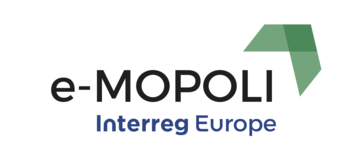ZERO EMISSIONS LOCAL PUBLIC TRANSPORT
Italy, Presented the vademecum "Electric buses for Tpl" by MOTUS-E.
In Italy, the vademecum "Electric buses for public transport" was presented on April 14 during a webinar starring MOTUS-E. The document, created and promoted by the members of the Association: ABB, EDISON, ENEL X, IVECO, Kyoto Club, SCANIA and University of Calabria, is intended for public bodies and operators. During the event, the presidents of the trade associations also spoke. This was followed by testimonials from ATM Milan, GTT Turin and La Panoramica in Chieti, where electric buses are already employed and used by citizens.
The contents of the vademecum were presented with the aim of being a valid tool to support Regions, local authorities and public transport companies in the implementation of a 100% electric LPT network, with battery electric buses (BEB).
Starting from an overview of the current panorama of electric buses and the benefits of electric mobility, the vademecum illustrates the technologies available for electric propulsion, from battery types to dedicated charging infrastructures (such as pantographs or depot charging). It also illustrates future scenarios on battery pack prices and the costs of charging strategies in fleet management. The advantages of electric mobility on the environment compared to endothermic vehicles and hydrogen powered vehicles are then analyzed. Finally, the guidelines for the maintenance of electric vehicles are illustrated, as well as the regulatory framework and some key studies at European level.
The vademecum is a document open to all stakeholders, state the Secretary General of MOTUS-E – the aim is to better support the decision-making processes of administrations, companies and operators.
The vademecum illustrates what can be a decisive revolution for the future of public transport, starting from the public-private partnership for LPT, able to support the entire electrification project not only in the replacement of vehicles but in a new ecosystem. This offers many opportunities for development, starting from recharging infrastructures, changing the layout of depots, simplified maintenance and finally the training of new professionals.


![[NEWS] Brescia: E-bike sharing in Brescia](/fileadmin/user_upload/tx_tevnewsevents/news/image_1664960602.jpg)
![[NEWS] Rogaland: battery-only high speed craft](/fileadmin/user_upload/tx_tevnewsevents/news/image_1664804367.png)
![[NEWS] BSC: promoting e-mobility in Gorenjska](/fileadmin/user_upload/tx_tevnewsevents/news/image_1660136312.png)
![[NEWS] BSC: new opportunities for cooperation](/fileadmin/user_upload/tx_tevnewsevents/news/image_1660136159.jpg)
![[NEWS] Rogaland: Solar power for electric airplanes](/fileadmin/user_upload/tx_tevnewsevents/news/image_1660135530.jpg)
![[NEWS] Bucharest: decarbonization of transports](/fileadmin/user_upload/tx_tevnewsevents/news/image_1656521459.jpg)
![[NEWS] Calabria: CENTRE FOR SUSTAINABLE MOBILITY](/fileadmin/user_upload/tx_tevnewsevents/news/image_1655983407.png)
![[NEWS] BSC: rental system network for bikes](/fileadmin/user_upload/tx_tevnewsevents/news/image_1655967495.png)
![[NEWS] Attica: Electromobility in Paiania](/fileadmin/user_upload/tx_tevnewsevents/news/image_1655110894.png)
![[NEWS] Attica: First e-bike festival in Athens](/fileadmin/user_upload/tx_tevnewsevents/news/image_1655110292.png)